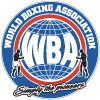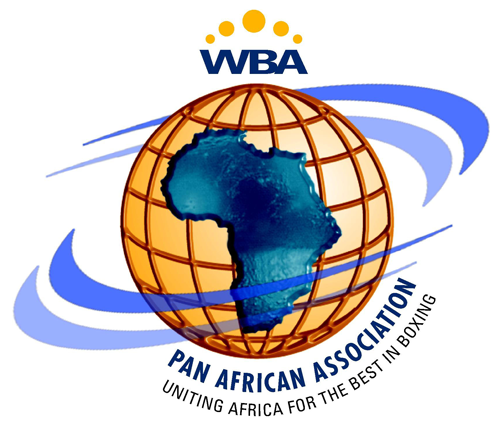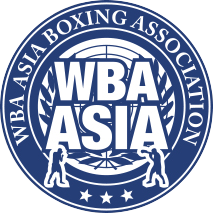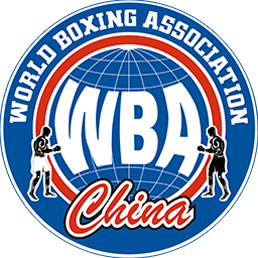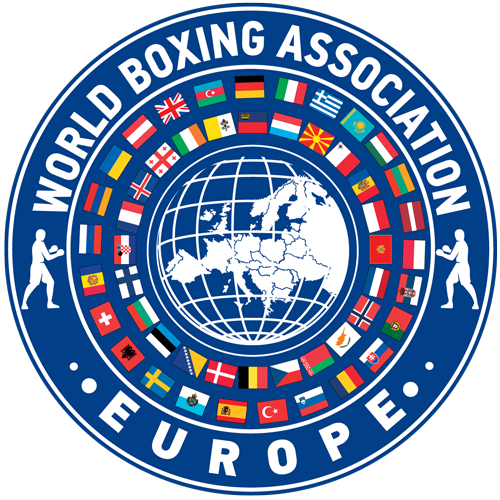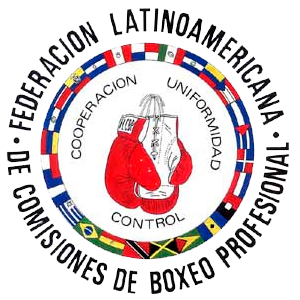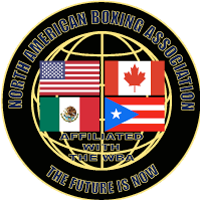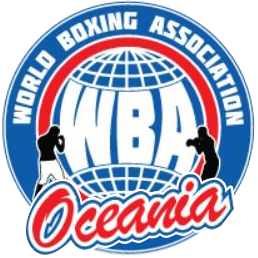Tomorrow marks 42 years of the fight between Antonio Gomez and Shozo Saijo
I close my eyes and in a hard memory exercise, I seem to have fixed in my retinal the image of the Korakuen Gym (known as Metropolitan Gym) a sort of Tokyo boxing temple in the 70’s, filled to the top of expectant fans, a very small group of Venezuelan, no more than 14 or 15 – I also see Antonio Gomez when he throws his first blow, a long explosive and accurate jab that lands in the chin of the featherweight champion Shozo Saijo (o Saijyo), whose head shudders and wobbles as if he were a string puppet.
(It is about 7:00 pm on September 2, 1971 in the Nippon capital, about 6:00 am same day in the far away Venezuela. It could have been 8:00 pm in Tokyo. Although the hour is the least important when I remember and write. 42 years have passed!! ¡Such a long time and so much water has rained since then, Antonio, how long and so much water..!)
After that long and solid left from the Oriental Venezuelan boxer, gave some lateral steps, like a cat, while to the Oriental Japanese boxer, stretched his arms and repeatedly turned neck over and over to get over the initial surprise.
Meanwhile, since the both corners were crying out their warnings to the opponents, Antonio, Hely Montes and Ramiro Machado, respective coach and manager, encouraged and asked his fighter to be cautious, while the American “trainer” Willie Ketchum, specially hired for the second, followed actions imperturbable.
When the second round has just started the challenger shot three jabs, five the most, and when the champion received one of them, he unexpectedly tumble down and fell feet up to the lights.
The 12 or 15 Venezuelan present, Carlitos González, Oswaldo “Gato” Sánchez, Sixto Dorta – the only names my mind keeps, although I believe Delio Amado León was also there, who unfortunately is no longer with us like the first two I mentioned- jumped euphoric from their seats.
However, nothing definite happened then: the fall was doubtfully regarded as a slip by the referee Alfredo Garzo, Japanese citizen, and the bell rang to end the without major alternative, with Gomez looking like a winner due to his technical expertise and superiority shown in those three minutes of opening battle. For the public, it was the presage a violent outcome in favor of the visitors.
Powerful right
At this point in the story I have to say that I would be a liar if I say I remember with absolute clarity all the actions of the night. Impossible. Believe that no human mind would be able to save on his hard drive, something that happened 504 months ago. I repeat: it is impossible.
Therefore, to tell you the rest of the story, despite the redundancy, I went to an old diary and in a review of the AFP Agency, I read and transcribe some of its paragraphs: “the powerful right of Antonio Gómez gave today to a new world champion to Venezuela, the WBA featherweight, after almost five rounds of one of the most exciting fights ever in Tokyo. The decisive blow… came in the fifth round when the champion Shozo Saijo, was relentlessly punished by the Venezuelan. The first fall of the Japanese occurred 30 seconds after the fifth and final round started, by a very powerful blow of Gomez.
The Japanese got up but the referee gave him the 8 second count. Gomez attacked again chasing his rival everywhere in the ring until he finished him with three more right hands. End (this note does not give any detail, but that I do remember, before the referee stepped in to stop the fight, Saijyo shook like a lion, but his brother threw a white towel to the ring, as it was customary meaning rendition.)
Antonio Gómez, a humble 26-year old boy from Cumana trained in a very humble gym under the direction of the famous “master” as his pupils called Hely Montes (for his knowledgeable hands passed many boxing stars like “Morochito” Rodríguez, Cruz and Alfredo Marcano, Pedro Gómez, José Luis Vallejo, Antonio Esparragoza, among others), he had become the best 126 pound (57,152 kilograms) of the world, the undisputed featherweight- the Mexican Vicente Saldívar was the WBC champion, but did not match him at all- believe me, he was the best of the world.
He joined the Light Heavyweight from Miranda, Vicente Paúl Rondón and the countryman super featherweight Alfredo Marcano, to raise the count to three world champions, number that will go up in November with Betulio González from Zulia, when he was declared the champion of the WBC after the Filippino Erbito Salavarria was disqualified, by the controversial bottle. However, the four titles were very ephemerons but I will tell you that story in another opportunity.
with the consecration of Gomez, finally the fans across the country could celebrate the conquest of a division had been dreamed for years to master, and that they had been unable win by “Pollo” Simón Chávez, Oscar “Torpedo” Calles, Víctor Adams (Sonny León) in the period between the 30’s and the 60’s, a four decade wait.
In Tokyo, one hour after the fight we thought what Venezuela would be like, and as we thought, Venezuela was a party.
jesusmcova@gmail.com
Venezuela fue una fiesta
Mañana se cumplen 42 años de la pelea entre Antonio Gómez y Shozo Saijo
Cierro los ojos y en un nada fácil ejercicio de memoria me parece tener congelada en la retina la imagen del Gimnasio Korakuen (conocido también como Metropolitan Gym), suerte de templo boxístico del Tokio de los años 70, repleto hasta el tope de expectantes espectadores, un minúsculo grupito de venezolanos entre ellos -no más de doce o quince- y veo también a Antonio Gómez cuando lanza, agazapado, su primer golpe, un largo, explosivo y certero jab que impacta en la barbilla al rey mundial de los plumas Shozo Saijo (o Saijyo), cuya cabeza se estremece y bambolea como si de un muñeco de cuerda se tratase.
(Son un poco más de las 7:00 de la noche del jueves 2 de septiembre de 1971 en la capital nipona, un poco más o un poco menos de las 6:00 de la mañana del mismo día en la lejana Venezuela. Podía haber sido algo menos de las 8:00 allá. Aunque realmente la hora es lo que menos importa cuando recuerdo y escribo. ¡42 años han pasado! ¡Cuánto tiempo y cuánta agua ha caído desde entonces, Antonio, cuánto tiempo y cuánta agua..!)
Después de aquella larga y seca izquierda el oriental de acá, el cumanés, dio unos pasos laterales, felinamente, mientras que el oriental de allá, el japonés, estiraba sus brazos y giraba repetidamente el cuello como para reponerse de la sorpresa inicial.
Entretanto, desde las dos esquinas resonaban los gritos de advertencia de rigor para los contrincantes. En la de Antonio, Hely Montes y Ramiro Machado, respectivos entrenador y apoderado, animaban y pedían cautela a su peleador en tanto que el “trainner” estadounidense Willie Ketchum, especialmente contratado por el segundo, seguía las acciones imperturbable.
Apenas transcurridos los primeros segundos de la vuelta, el retador disparó tres o acaso cinco veces más su jab y al recibir uno de ellos el monarca defensor, inesperadamente, trastabilló y cayó, con los botines hacia las luces, hacia el cielo.
Los 12-15 venezolanos presentes, Carlitos González, Oswaldo “Gato” Sánchez, Sixto Dorta -los únicos nombres que mi mente retiene. Creo que también se hallaba allí Delio Amado León, quien, al igual que los dos primeros ya no está con nosotros- todos ellos, saltaron eufóricos de sus asientos.
Pero nada definitivo pasó entonces: la caída fue dudosamente apreciada como un resbalón por el árbitro Alfredo Garzo, nacionalizado japonés, y la campana sonó para el fin de un asalto que concluyó sin otras mayores alternativas, si bien con Gómez ya como lo más parecido a un vencedor vista la solvencia técnica y la superioridad mostradas en aquellos tres minutos de la apertura del combate. Para el público, todo permitía presagiar un desenlace violento en cualquier momento, a favor del visitante.
Derecha poderosa
En este punto del relato debo asentar que sería un mentiroso si dijera que recuerdo con absoluta claridad todas las acciones del encuentro. Imposible. Se me ocurre pensar que ninguna mente humana estaría en capacidad de guardar, en su disco duro, la totalidad de un hecho acontecido hace nada menos que 504 meses. Repito: es imposible.
Por ello, para contarles el resto del cuento, valga la redundancia, me fui hasta un viejo diario y en una reseña de la agencia AFP leo, y transcribo de ella algunos párrafos: “La poderosa derecha de Antonio Gómez proporcionó hoy a Venezuela un nuevo título mundial de boxeo, el de los plumas, versión WBA, tras casi cinco rounds de una de las peleas más emocionantes jamás vista en Tokio. El golpe decisivo (…) vino en el quinto asalto cuando el campeón Shozo Saijo, era implacablemente castigado por la derecha del venezolano. La primera caída del japonés se produjo 30 segundos después del comienzo del quinto y último round, mediante un durísimo golpe de Gómez.
El japonés se levantó pero el árbitro desgranó la cuenta reglamentaria de ocho segundos. Gómez se lanzó entonces al ataque, persiguiendo a su rival por todos los rincones del tinglado hasta acabarlo con tres derechazos más”. Fin. (No dice esa reseña, pero el detalle sí lo recuerdo, que antes de que el referí se interpusiera para detener la desigual confrontación -Saijyo se batió como un león, es justo acotarlo- desde su esquina el hermano del ya excampeón tiró al centro del enlonado una blanca toalla, como se estilaba para la época, que significaba la rendición)
Antonio Gómez, un modesto muchacho cumanés de 26 años, formado en un no menos modesto gimnasio de su ciudad natal bajo la tutela de ese gran forjador de peleadores que fue, como lo bautizaron sus alumnos, “el maestro” Hely Montes (por su sabiduría pasaron montones de estrellas del cuadrilátero, tales “Morochito” Rodríguez, Cruz y Alfredo Marcano, Pedro Gómez, José Luis Vallejo, Antonio Esparragoza, entre varios), era ahora el mejor 126 libras (57,152 kilogramos) del orbe, el indiscutido mejor peso pluma -el mexicano Vicente Saldívar reinaba en la versión del CMB, pero no le llegaba ni a las rodillas al nuevo soberano, créanme- en todo el universo de fistiana.
Se unía así Gómez al semicompleto mirandino Vicente Paúl Rondón y al coterráneo de Gómez, el superpluma Alfredo Marcano, para elevar a tres el número de boxeadores nativos con testas coronadas, cifra que aumentaría en noviembre del mismo año con el zuliano Betulio González, declarado campeón por el Consejo Mundial de Boxeo a raíz de la descalificación del mosca filipino Erbito Salavarría en el polémico fallo “de la botellita”, los cuatro cetros resultaron efímeros, volátiles, pero esa es otra larga historia que no encaja aquí.
Faltaría decir que con la consagración de Gómez finalmente los aficionados de todo el país podían celebrar la conquista de un título en la división que por años habían soñado poder dominar, y que les había sido imposible conseguir a figuras de la talla del “Pollo” Simón Chávez, Oscar “Torpedo” Calles, Víctor Adams (Sonny León) en los años que iban de los ’30 al ’60; vale decir, una larga espera de más de 4 décadas.
En Tokio, una hora después de la pelea pensábamos en cómo estaría Venezuela y como suponíamos, Venezuela era una fiesta.
jesusmcova@gmail.com










